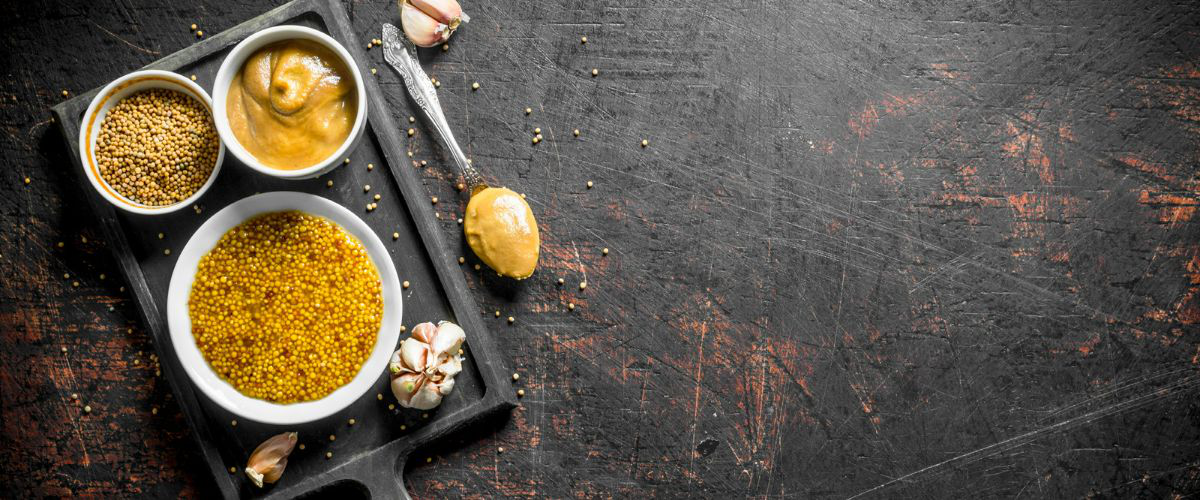Dijon Mustard: The Ultimate Guide for this Spicy Condiment
Brown or black mustard seeds, white wine, and herbs and spices are used to make Dijon mustard. It has the name of the French city of Dijon, which was initially developed in the 18th century. A common condiment that may be spread or used in cooking is dijon mustard. If you use spicy dijon mustard, it can be hot and has a strong taste. We'll talk about the history of dijon mustard and some culinary tips in this blog article! You may also try some of the recipes we've included for dijon mustard!
What is Dijon Mustard?

Smooth, creamy Dijon mustard is a specialty of the French city of Dijon. It has a strong, acidic taste and is produced with white wine, vinegar, and spices. For meats and sandwiches, dijon mustard is frequently used as a condiment. Additionally, it can be used to flavor dishes.
A versatile component, dijon mustard may be used in a variety of dishes. Try adding Dijon mustard if you want to give your cuisine a little more flavor. You won't be let down.
Health Benefits of Dijon Mustard
Vitamin C, manganese, phosphorus, and selenium are among the vitamins and minerals that Dijon mustard is an excellent source of. Omega-three fatty acids, which are good for heart health, are also found in Dijon mustard. The amount of omega-3 fatty acids in one tablespoon of Dijon mustard is equivalent to around 3% of the daily recommended dose.
With just five calories per teaspoon, dijon mustard is a low-calorie condiment. Dijon mustard also has less salt and no fat. This makes it a wonderful option for anyone following a diet for weight loss or heart health.
Antioxidants included in dijon mustard can help shield cells from harm and may lower the chance of developing several chronic illnesses. Quercetin, a particular type of antioxidant present in Dijon mustard, has been connected to a lower risk of heart disease and cancer.
History of Dijon Mustard
Dijon mustard is a type of mustard that originated in the French city of Dijon. Mustard has been produced in Dijon since the 13th century, and the city's mustards have been famous since the 15th century. In 1856, Jean Naigeon of Dijon replaced verjuice, the acidic "green" juice of unripe grapes, in the traditional mustard recipe with vinegar. He also created a smooth, creamy texture by adding egg yolks and oil to the mixture. This new style of mustard quickly became popular, and Dijon mustard is now used all over the world.
Dijon mustard is made from brown or black mustard seeds, vinegar, water, salt, and spices. The mustard seeds are ground into a paste, and the other ingredients are added to create the desired flavor and consistency. Dijon mustard is used as a condiment on sandwiches and in recipes for salads, dressings, sauces, meat dishes, and more.
Different Ways to Use Dijon Mustard in Food
- Dijon mustard can be used in a variety of dishes to add flavor. It can be used in the following ways to ensure maximum flavor and different tasty profiles:-
- Spread on sandwiches
- Condiment for meats or vegetables
- Salad dressings
- Ingredient in sauces and marinades
- It's crucial to bear in mind that a little dijon mustard goes a long way when you're cooking with it. If used in excess, this savory condiment might easily dominate other flavors. When using dijon mustard, apply a little at first, then more as desired. You may always add more, but once anything has been added, it cannot be removed.
Pork Tenderloin with Dijon Mustard Crust

Ingredients:
-Pork tenderloin
-Bread crumbs
-Garlic powder
-Salt
-Pepper
Instructions:
- Set oven temperature to 400 degrees.
- Combine Dijon mustard, bread crumbs, garlic powder, salt, and pepper in a small bowl.
- Rub the mixture all over the pork.
- Spread the pork out on a baking sheet, and bake it for 25 minutes, or until it is well done.
- Five minutes should pass before slicing. Serve alongside your preferred sides. Enjoy!
Dijon mustard is a versatile seasoning that works well with a variety of foods. It is created with vinegar, white wine, and spices and has a powerful, acidic flavor. Dijon mustard also contains plenty of vitamins and minerals. It is also fat-free and contains less salt. For a little more flavor, try incorporating Dijon mustard into your next recipe. You won't be disappointed! You can also learn about Balsamic Vinegar here at Marky's.



